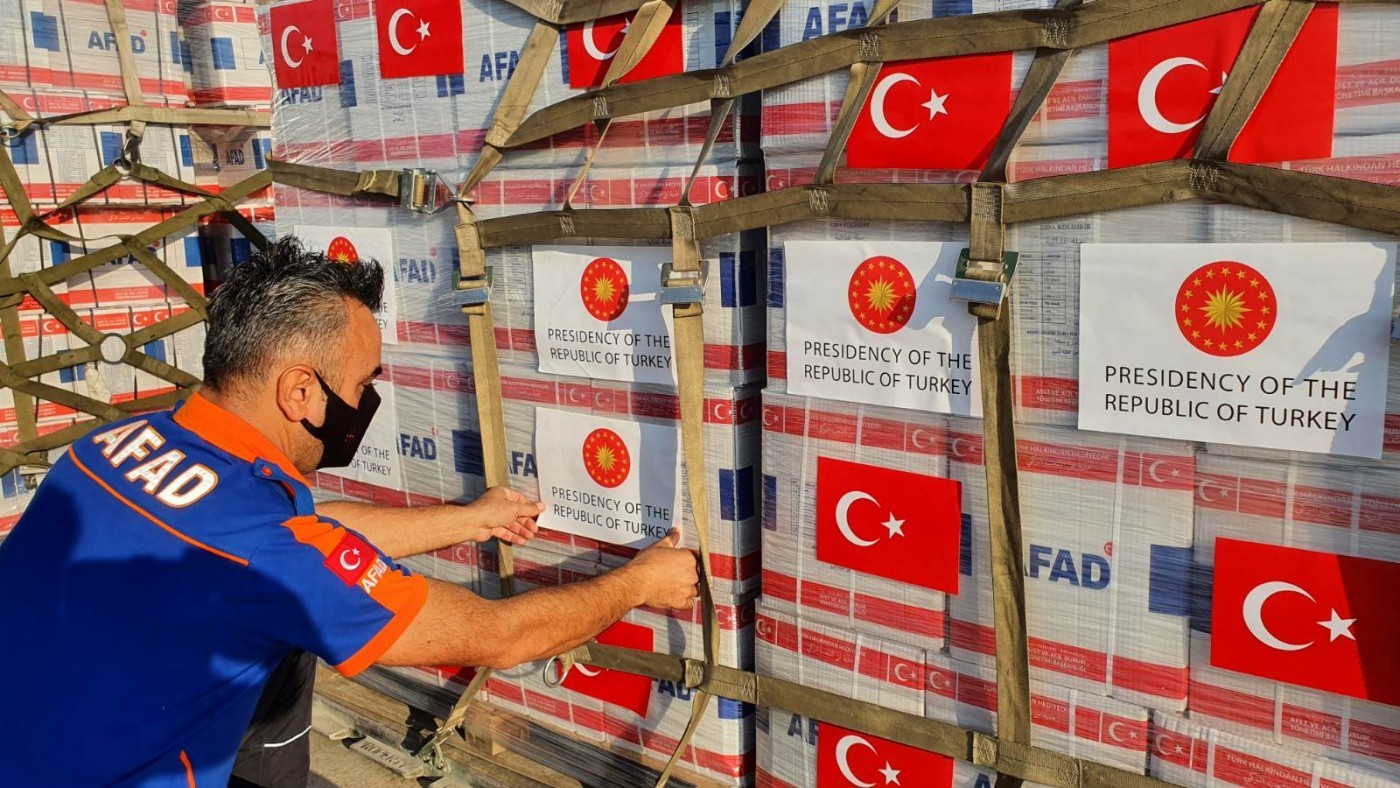Al-Watan has learned that the regime in Turkey has obstructed the entry of UN relief aid convoys “across established lines” from Aleppo to the “de-escalation” area of Idleb. The Turkish regime is trying to out-maneuver Russia, in light of the military and political tension between Moscow and Ankara concerning northern and northeastern Syria. These developments come against the backdrop of Turkish threats of aggression to annex new Syrian territory and Russia’s truce to prevent this.
On August 20th and 21st, a 15-truck UN relief aid convoy crossed the “lines of contact” from Aleppo to Idleb through the Miznaz humanitarian corridor, established by the Syrian government earlier this year, for the first time. This development followed the UN Security Council’s adoption of a resolution, on July 9th, to extend the mechanism for delivering “cross-border” humanitarian assistance to Syria for another year. The resolution applies to deliveries through the Bab al-Hawa crossing in northwestern Syria, at the Turkish border. The resolution is subject to review after six months — i.e. by the beginning of next year — which involves evaluating the resolution’s impact on the ground.
An exclusive al-Watan source revealed that many UN relief organizations, including the World Food Programme (WFP), have intensified their efforts over the past two months to operate a larger relief convoy than previously, running from Aleppo to Idleb via Miznaz. Yet Tahrir al-Sham, under orders from [Turkish President] Erdogan, refused to allow the convoy to enter the “de-escaltion” areas. Instead, Tahrir al-Sham insisted on admitting aid only “across the border” from Bab al-Hawa. This happened in mid-October, when Tahrir al-Sham allowed 108 trucks loaded with UN relief supplies through the border crossing run by the so-called Syrian Salvation Government — the political arm of al-Qaeda’s Syrian branch, are coming from Turkey.
Read Also: Details of Turkish Authorities Release of Syrian Journalist Majed Shamaa
Observers of the UN humanitarian assistance issue on “de-escalation” explained to al-Watan that Moscow imposed pressure on the resolution to extend the mechanism for delivering “cross-border” humanitarian aid during the previous period. Russia sought to recalibrate the mechanism and replace it with a system for humanitarian access through the “front lines,” under the Syrian government’s supervision. The new proposal aimed to ensure the steady and secure delivery of aid across the lines within Syria, in order to correct the previous mechanism’s imbalance. The assistance targets an area under Tahrir al-Sham’s control, which the UN Security Council lists as a terrorist organization. The previous mechanism affected Tahrir al-Sham’s officials, who have the largest share of aid delivered. But Russian efforts have borne no fruit on the ground, due to the Turkish regime’s intransigence in opening Russian-sponsored “humanitarian corridors,” as well as poor coordination between Russia and the United States.
The observers pointed out that the topic was discussed in mid-September, during a Geneva meeting between Brett McGurk, Middle East official at the National Security Council, Russian Deputy Foreign Minister Sergei Vershinin, and presidential envoy Alexander Lavrentiev. The meeting’s outcomes subsequently disappointed Moscow, which preferred “cross-lines” instead of “cross-border” aid, and hoped to reach the full adoption of the former moving forward.
The observers pointed out that the meeting expected next week, which will again bring together McGurk, Vershinin, and Lavrentiev in Geneva, should produce results. These outcomes should focus on how the UN humanitarian aid mechanism to Syria operates, ahead of the review date at the UN Security Council early next year. This comes after Moscow’s objection and threat based on Washington’s failure to fulfill its obligations in this regard, amongst other promises related to easing the restrictions of the Caesar Act.
This article was translated and edited by The Syrian Observer. The Syrian Observer has not verified the content of this story. Responsibility for the information and views set out in this article lies entirely with the author.


